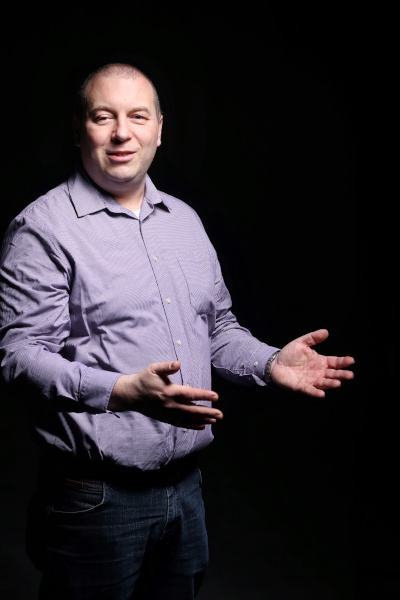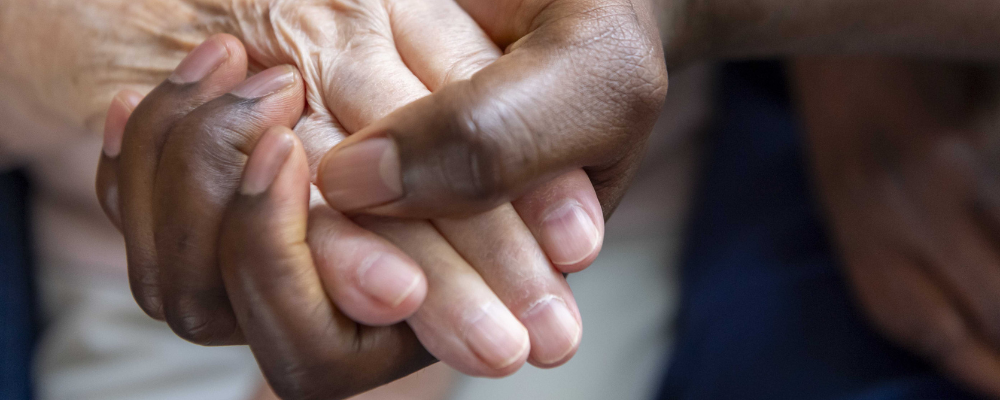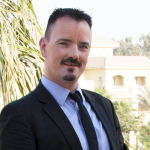After a formative experience, Markus Höfler decided to help terminally ill people to die painlessly. As director of the Alzenau Hospice, he is committed to educating his patients, allaying their fears and bringing them joy through the little things as he has experienced first-hand how quickly the tide can turn.
Mr Höfler, dealing with death can be challenging. Why did you choose to work in a hospice?
Markus Höfler: I worked as an intensive care nurse for twelve years and in anaesthesia for two years. Once, a very old woman was admitted. She had a blockage in an abdominal artery. During the pre-procedure interview, the surgeon said: ‘We’ll open it up, take out the diseased piece of bowel, and then you’ll be fine. If you don’t do this, you’ll die.’ So the operation was performed. The doctors cut open the woman’s abdomen and saw that everything was infiltrated. They sewed her up again without any intervention. Done. Then the woman lay in the intensive care unit for another five hours and died connected to machines. For me, that was pure cynicism. It would have been better for her and her family if she had been able to say goodbye to her loved ones with dignity, while lying in a single room and being supplied with morphine. After this ugly experience, I was deeply frustrated. It was simply undignified. Questions arose in me about what this work brings, whether it is humane at all. And whether it would not be better if old and terminally ill people were allowed to die painlessly. During this time, my son was born, and I wanted to spend time with him. I was offered the position of deputy director of the hospice in Alzenau, which is closer to my home. So I took it.
What situation at the hospice do you remember fondly, what moment touched you particularly or even made you happy?

Markus Höfler: There is a situation that I tell about in school lectures. A 90-year-old man who suffered from pancreatic cancer was staying at the hospice. In the final stages of the disease, this means nausea and vomiting. I knew from his biography that the man liked to drink beer with his evening meal. So one evening I offered him a sip of beer. He drank it and after two minutes he vomited. I knew that this would happen. His words were: ‘Oh, that was good!’ It are these little things that are important in palliative care – and not the big programme.
Patients suffering from amyotrophic lateral sclerosis (ALS), for example, are repeatedly told that they are suffocating. However, this is wrong in the sense of ‘struggling for breath’. What is true is that ALS patients become increasingly tired and fall asleep because the release of carbon dioxide no longer works during breathing. We talk about such processes with our guests and relatives. This education is very important because it takes away fear.
Those who deal with death a lot also think about their own departure. What provisions have you made for when you leave this world?
Markus Höfler: I was diagnosed with cancer a few years ago and thought about a lot of things during that time. At first, I asked myself why me. Then you move on and take care of things. I called a family council and asked certain people to take responsibility and make decisions on my behalf if I were to be taken out. And I see every day, or rather have personally experienced twice during the course of my illness, how quickly that can happen. You quickly go from being an expert to a layperson because your mind works differently. Incidentally, I had already completed my living will and power of attorney before that.
Can you think of a conversation in which you no longer wanted to maintain professional distance, consciously or unconsciously gave it up – and what effect did that have on you?
Markus Höfler: Fortunately, that has never happened to me. I am good at reflecting on myself and have learned to withdraw when something gets to me. To me, the saying ‘I can’t do this anymore’ is a sign of strength rather than weakness. I also encourage my colleagues to change guests more often and not to look after them for too long and I process what I experience at the hospice at home with my wife or with my colleagues. It affects me most when the guests are children’s parents or people my own age. I’m very honest with myself.
Imagine you are 90 years old and your life is coming to an end. If you were to meet your teenage alter ego, what would you want to say to your second self?
Markus Höfler: It’s a cliché, but true: live every day! I’ve never been interested in status symbols. However, family, leisure and holidays have become even more important to me since my illness. I regret not having travelled around Europe as a teenager. My parents discouraged me from doing so at the time. I would strongly urge young Markus to do that. Today, I take my son swimming or on a journey of discovery, such as to the Experiminta. Spending this valuable time together makes me happy.


